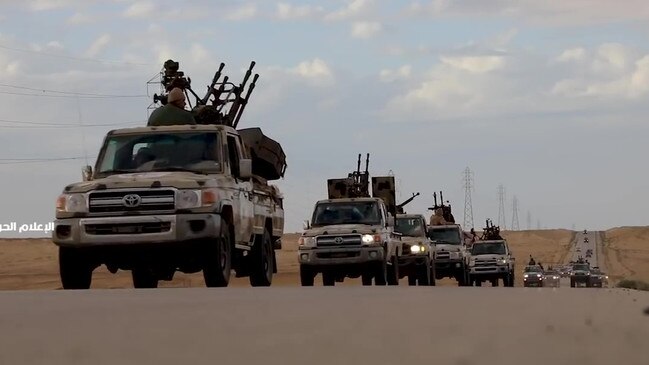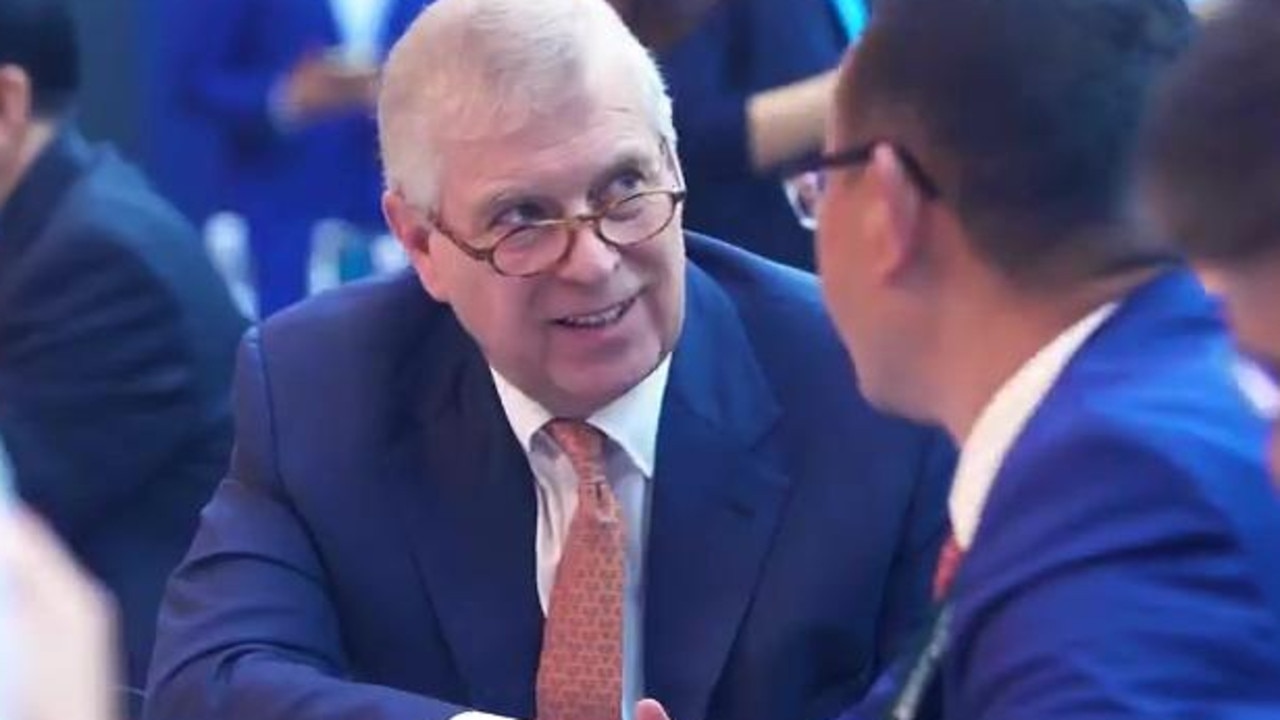Egypt-backed separatists march on Tripoli
Libya was on the brink of a third civil war in eight years yesterday after a general ordered his troops to march on Tripoli.

Libya was on the brink of a third civil war in eight years yesterday after the general whose forces run the east of the country ordered his troops to march on Tripoli.
The self-styled Libyan National Army of Marshal Khalifa Haftar was heading towards the capital hours after it seized Gharyan, 100km south, despite the arrival on Wednesday of Antonio Guterres, the United Nations secretary-general, for peace talks.
Ignoring Mr Guterres’s pleas for calm, Marshal Haftar, 74, ordered his men to advance. “Today we complete our march,” he said. “Today we will shake the land under the feet of their oppressors. We are coming Tripoli, we are coming.”
He told his forces not to open fire on civilians, saying that “those who lay down their weapons are safe and those who raise the white banner are safe”, but the announcement raised fears of a further round of the fighting that has disfigured the city since the revolution that overthrew Muammar Gaddafi in 2011.

Mr Guterres, who arrived to meet leaders of the UN-recognised government of national accord in Tripoli, said he was “deeply concerned by the military movement and the risk of confrontation”. Marshal Haftar, backed by Egypt and the United Arab Emirates, has established ever greater dominance in the east after clearing Libya’s second city, Benghazi, and nearby towns of jihadist groups, effectively splitting the country.
The GNA, negotiated by factions on either side, in theory holds sway in Tripoli, although power lies largely with an uneasy coalition of militias, many of them Islamist, left over from the 2011 revolution against Gaddafi.
A rival parliament to the GNA, which fled a surge into Tripoli by Islamist and allied militias in 2014, sits in Tobruk in the east and recognises Marshal Haftar as the head of the army.
Militias loosely aligned to the GNA in Misrata, Libya’s third city, who are the most hostile to Marshal Haftar, said they “stood ready to stop the cursed advance”. Their brigades were sent east to head off his reinforcements, while battalions in Sirte were said to be moving to stiffen the capital’s defences. These militias successfully cleared Islamic State out of Sirte.
Infighting among the many militias in Tripoli is common, but several of them are influenced by the Muslim Brotherhood, which Marshal Haftar and his backers in Cairo and the Gulf have threatened to destroy, and are likely to fight back fiercely.
Marshal Haftar has been ambivalent about the peace talks, though he has met the UN-recognised Prime Minister, Faiez Serraj, several times. Their most recent meeting was in February in Abu Dhabi, where they agreed to hold elections.
However, this year the commander has seized partial control of the country’s desert south, known as the Fezzan. That enabled him to establish his forces on the southern approach roads to Tripoli and the western coast. By yesterday they had reached a security barrier 27km from Tripoli.
Marshal Haftar was a general in Gaddafi’s army but defected and spent two decades in the US. At the time of the revolution he was said to be close to the CIA. He has been endorsed by Russia in recent years, but Moscow has not offered military support.
Anas El Gomati, director of the Sadeq Institute, a Libyan think tank, said Marshal Haftar was trying to force any peace deal to give him not only control of the army but also the right to appoint half the presidential council. That was a red line the Tripoli and Misrata brigades would not consider.
The marshal’s surges into the desert and towards Tripoli may be a way to put pressure on Mr Serraj before the talks, or may be a real attempt to take the capital.
“Both options are on the table,” Mr Gomati said. “He’s betting on the fact that there has been little or no international condemnation or sanction.”
The Times


